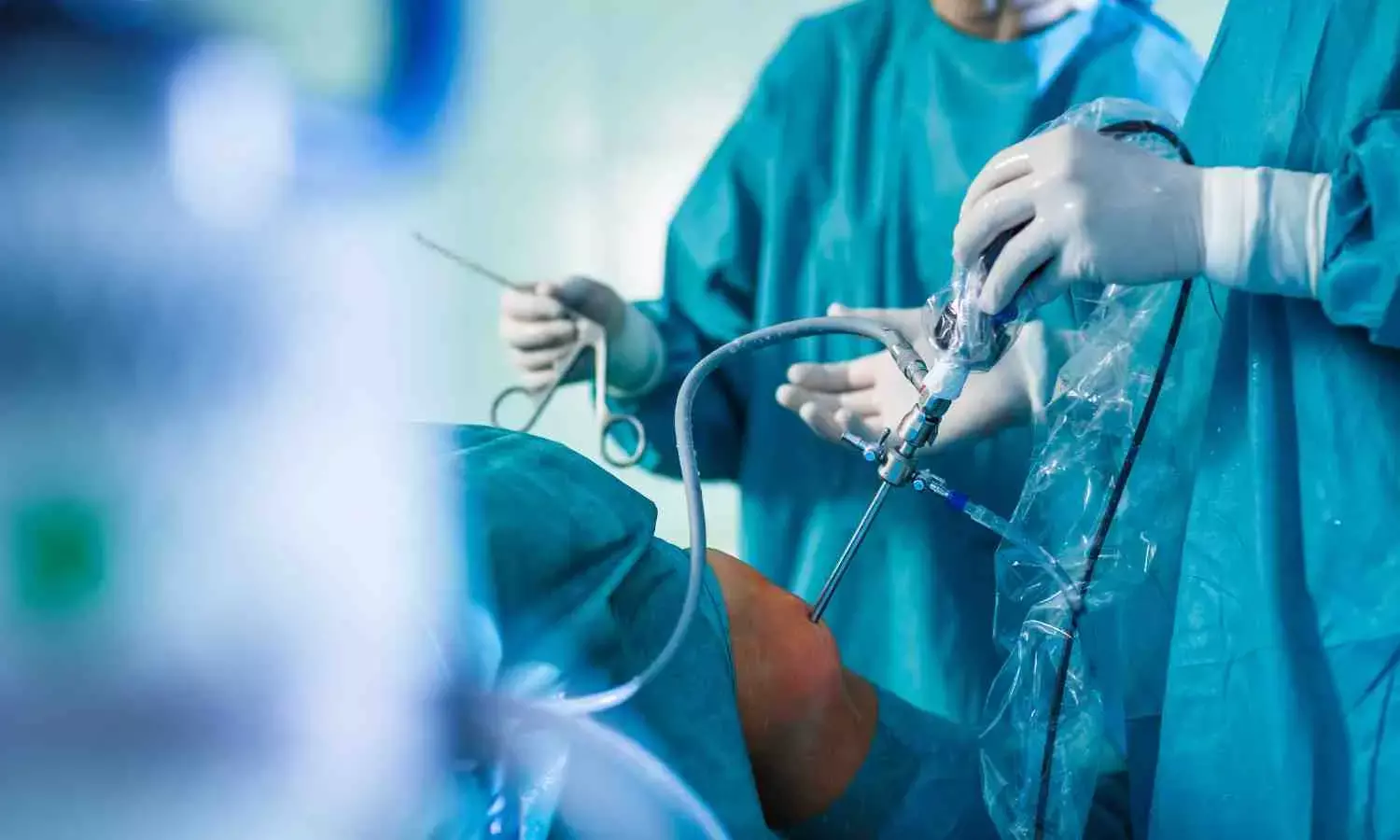- Home
- Medical news & Guidelines
- Anesthesiology
- Cardiology and CTVS
- Critical Care
- Dentistry
- Dermatology
- Diabetes and Endocrinology
- ENT
- Gastroenterology
- Medicine
- Nephrology
- Neurology
- Obstretics-Gynaecology
- Oncology
- Ophthalmology
- Orthopaedics
- Pediatrics-Neonatology
- Psychiatry
- Pulmonology
- Radiology
- Surgery
- Urology
- Laboratory Medicine
- Diet
- Nursing
- Paramedical
- Physiotherapy
- Health news
- Fact Check
- Bone Health Fact Check
- Brain Health Fact Check
- Cancer Related Fact Check
- Child Care Fact Check
- Dental and oral health fact check
- Diabetes and metabolic health fact check
- Diet and Nutrition Fact Check
- Eye and ENT Care Fact Check
- Fitness fact check
- Gut health fact check
- Heart health fact check
- Kidney health fact check
- Medical education fact check
- Men's health fact check
- Respiratory fact check
- Skin and hair care fact check
- Vaccine and Immunization fact check
- Women's health fact check
- AYUSH
- State News
- Andaman and Nicobar Islands
- Andhra Pradesh
- Arunachal Pradesh
- Assam
- Bihar
- Chandigarh
- Chattisgarh
- Dadra and Nagar Haveli
- Daman and Diu
- Delhi
- Goa
- Gujarat
- Haryana
- Himachal Pradesh
- Jammu & Kashmir
- Jharkhand
- Karnataka
- Kerala
- Ladakh
- Lakshadweep
- Madhya Pradesh
- Maharashtra
- Manipur
- Meghalaya
- Mizoram
- Nagaland
- Odisha
- Puducherry
- Punjab
- Rajasthan
- Sikkim
- Tamil Nadu
- Telangana
- Tripura
- Uttar Pradesh
- Uttrakhand
- West Bengal
- Medical Education
- Industry
Bariatric Surgery Effective than Medical Management in Achieving Diabetes Remission: Study

A new review published in the journal of Diabetes, Obesity and Metabolism highlighted the remarkable effectiveness of bariatric surgery in patients with type 2 diabetes mellitus (T2DM), placing it well ahead of conventional medical management in terms of diabetes remission and the prevention of certain microvascular complications.
This research analyzed studies sourced from PubMed/Medline, Embase, and the Cochrane Central Register of Controlled Trials, with strict inclusion criteria of comparing bariatric surgery with medical management in T2DM patients and had at least one year of follow-up. Outcomes of interest included diabetes remission, microvascular complications like kidney disease or retinopathy, and macrovascular complications like heart attack or stroke.
At the one-year mark, 53.1% of the patients undergoing surgery achieved diabetes remission, when compared to only 5.4% of those managed medically. This translated into a risk ratio (RR) of 8.26, signaling a more than 8-fold higher chance of remission with surgery. Importantly, the advantage persisted over time: at 2 years, patients who underwent surgery were over 7-times more likely to achieve remission, while at 3 years, the risk rose nearly 17-fold. Even after 5 years or more, surgery continued to demonstrate superior outcomes, with a remission rate over 4-times higher than medical therapy.
When considering microvascular events, bariatric surgery showed a protective effect. The patients who had undergone surgery experienced a 58% reduced risk of these complications when compared to those who received only medical care. Within this category, the most notable improvement was in albuminuria, a marker of kidney damage, with surgery lowering the risk by 63%. However, the trials did not demonstrate significant reductions in the progression of diabetic retinopathy.
Also, when looking at macrovascular complications, which include heart disease, stroke, and peripheral vascular disease, the difference between bariatric surgery and medical management was not statistically significant. The risk ratio was close to unity, suggesting that surgery does not substantially alter the risk of major cardiovascular events when compared to standard care.
Overall, these findings positions bariatric surgery as a powerful tool for achieving diabetes remission and protecting against microvascular damage in patients with T2DM. However, longer-term trials with broader surgical representation remain needed to fully assess its cardiovascular benefits.
Source:
Cheng, J., Yu, H., Gu, Y., Ma, C., Li, C., Pan, Z., & Yuan, M. (2025). Diabetes remission and diabetic complications of bariatric surgery vs. medical management in patients with type 2 diabetes: A meta-analysis of randomized controlled trials. Diabetes, Obesity & Metabolism. https://doi.org/10.1111/dom.70152
Neuroscience Masters graduate
Jacinthlyn Sylvia, a Neuroscience Master's graduate from Chennai has worked extensively in deciphering the neurobiology of cognition and motor control in aging. She also has spread-out exposure to Neurosurgery from her Bachelor’s. She is currently involved in active Neuro-Oncology research. She is an upcoming neuroscientist with a fiery passion for writing. Her news cover at Medical Dialogues feature recent discoveries and updates from the healthcare and biomedical research fields. She can be reached at editorial@medicaldialogues.in
Dr Kamal Kant Kohli-MBBS, DTCD- a chest specialist with more than 30 years of practice and a flair for writing clinical articles, Dr Kamal Kant Kohli joined Medical Dialogues as a Chief Editor of Medical News. Besides writing articles, as an editor, he proofreads and verifies all the medical content published on Medical Dialogues including those coming from journals, studies,medical conferences,guidelines etc. Email: drkohli@medicaldialogues.in. Contact no. 011-43720751


